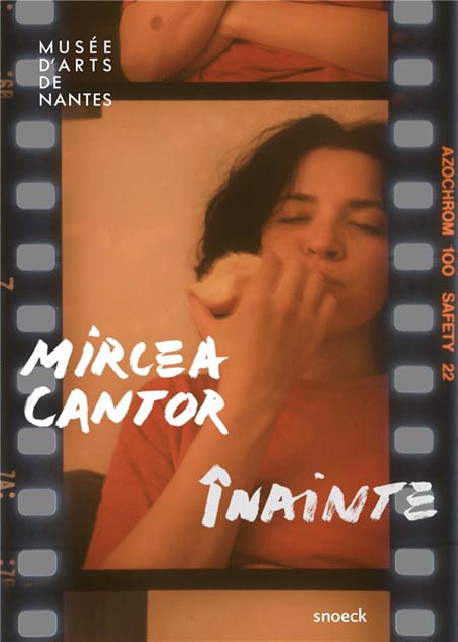No products
Product successfully added to your shopping cart
There are 0 items in your cart. There is 1 item in your cart.
Exhibition catalogue
- New Art Books
- Exhibition catalogue
- Highlights
- Art Book Sale
- Museum's Shop & Gifts
- Bilingual art books and foreign editions
- Children's Books
- Art History
- Painting
- Architecture
- Sculpture
- Drawing & Engraving
- Photography
- Contemporary art
- Decorative Arts & Design
- Art Techniques
- Critics
- Entertainment art books
- Civilisations
- Partners Reviews
Mircea Cantor, Inainte
As part of the Institut Français France-Romania Season, the Musée d’arts hosts the internationally renowned artist Mircea Cantor for a solo exhibition in the Chapelle de l’Oratoire.
Product not available
| Model | 9789461615398 |
| Artist | Mircea Cantor |
| Author | Sous la direction de Katell Jaffrès, Julie Heintz |
| Publisher | Snoeck / Musée des Beaux-arts de Nantes |
| Format | Ouvrage broché |
| Number of pages | 110 |
| Language | Bilingue Français / English |
| Dimensions | 235 x 170 |
| Published | 2019 |
| Museum | Musée des Beaux-arts de Nantes |
Exhibition Catalogue Mircea Cantor, Inainte, presented at the Chapelle de l’Oratoire, Musée des Beaux-arts de Nantes (15 march - 15 september 2019).
Born in Romania in 1977, Mircea Cantor lives and works “on Earth”. He won the Marcel Duchamp Prize in 2011 and the Fondation d’entreprise Ricard Prize in 2004
The artist, who refers to himself as an “artist of the world”, challenges notions of identity, ethics, politics, and also contemporary reality with all its contradictions.
Encompassing video, photography and sculpture, the exhibition brings together a group of recent and earlier works. The video Adjective to your presence, shot in Tokyo in 2018, shows demonstrators carrying transparent placards. It engages in a dialogue with Landscape is changing, in which demonstrators carry mirror placards reflecting the city of Tirana, where the film was shot in 2003. Produced in Romania and Nantes, and comprising work from his youth and pieces from the body of experiments on which the artist is casting his gaze with the benefit of hindsight, the extensive selection of photographs assembled for the exhibition presents previously unseen material putting in perspective artistic approaches adopted very early in his career by Mircea Cantor and the elements which subsequently became central to his work.
Traces and memories are placed in counterpoint in the Chapelle de l’Oratoire, illustrating the ambiguous Romanian word Înainte, which can mean both “forwards” or “before”, depending on the context.
Recently viewed items











